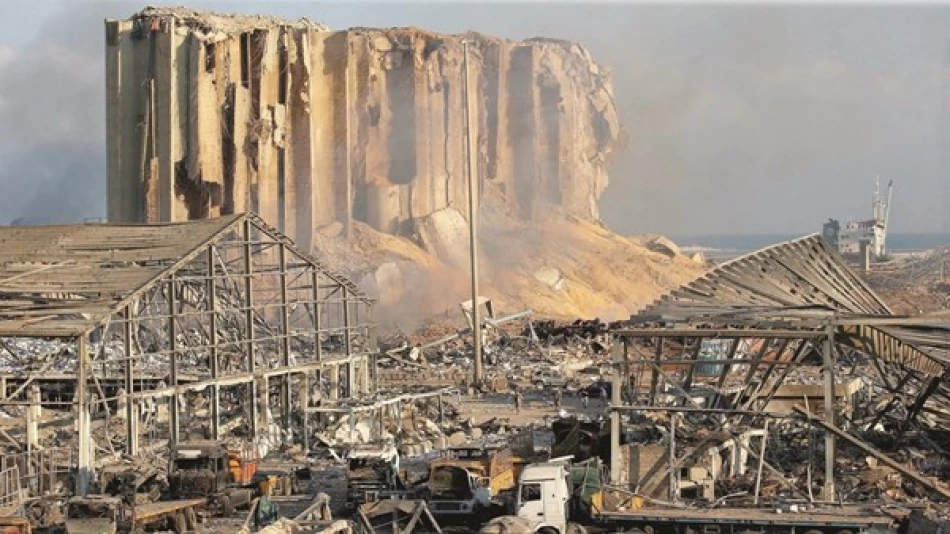
Beirut Port Explosion Anniversary: President Vows to Deliver Justice
Lebanon's New Leadership Vows Justice for Beirut Port Blast as Investigation Nears Completion
Five years after the devastating Beirut port explosion killed over 220 people, Lebanon's newly elected President Joseph Aoun has pledged to deliver justice "without discrimination," marking a potential turning point in a case that has symbolized the country's culture of impunity. The promise comes as judicial investigator Tarek Bitar has successfully questioned all defendants in the case, breaking years of political obstruction that had stalled the investigation.
A Tragedy That Shook the World
The August 4, 2020 explosion at Beirut's port ranks among the largest non-nuclear blasts in history, devastating Lebanon's capital and injuring over 6,500 people. The disaster was caused by the detonation of massive quantities of ammonium nitrate stored unsafely at the port following a fire of unknown origin. Investigations later revealed that multiple officials across various levels of government knew about the dangerous storage conditions but failed to act.
The blast occurred during Lebanon's worst economic crisis in decades, compounding the country's financial collapse and deepening public anger toward a political establishment widely viewed as corrupt and incompetent.
Breaking Through Political Obstruction
For over two years, the investigation faced systematic political interference, with powerful figures using legal maneuvers and political pressure to block proceedings. This changed dramatically following President Aoun's election and the formation of Prime Minister Nawaf Salam's government, both of whom have committed to judicial independence.
Key Developments in the Investigation
Investigator Bitar has now completed questioning all defendants, including former Prime Minister Hassan Diab and various military and security officials. However, four former officials—three ex-ministers and former Prosecutor General Ghassan Oweidat—refused to appear for questioning, highlighting ongoing resistance to accountability.
According to judicial sources, Bitar is finalizing procedural steps before closing the investigation and referring the case to the Public Prosecutor's office for final decisions. Notably, no one currently remains detained in connection with the case.
A Test Case for Lebanon's Future
The port blast investigation has become a litmus test for Lebanon's ability to break its cycle of impunity. For decades, Lebanese officials have rarely faced consequences for corruption or negligence, contributing to the country's institutional decay and economic collapse.
President Aoun's commitment that "justice knows no exceptions, and the law applies to everyone without discrimination" represents a stark departure from previous rhetoric. His direct message to victims' families—"the blood of your loved ones will not be in vain"—signals an attempt to rebuild public trust in state institutions.
Regional Context and International Pressure
Lebanon's handling of the port blast case occurs against a backdrop of regional upheaval and international scrutiny. The country's economic crisis has made it increasingly dependent on international aid and support, creating leverage for foreign governments and organizations demanding accountability and reform.
Unlike other regional disasters where investigations were quickly closed or forgotten, the Beirut port case has maintained international attention, partly due to Lebanon's diaspora and civil society's persistent advocacy efforts.
What's at Stake
The investigation's outcome will likely determine whether Lebanon can begin rebuilding institutional credibility or will continue its descent into failed state status. For victims' families, who have organized persistent protests and legal challenges, the case represents their last hope for justice through official channels.
As Lebanon observes an official day of mourning and families march toward the port site, the country stands at a crossroads. Success in prosecuting those responsible could mark the beginning of a new era of accountability, while failure would likely cement public cynicism and further erode faith in the state's ability to protect its citizens.
The coming months will reveal whether Lebanon's new leadership can deliver on promises that have been made and broken repeatedly since that tragic August day five years ago.
Most Viewed News

 Layla Al Mansoori
Layla Al Mansoori






